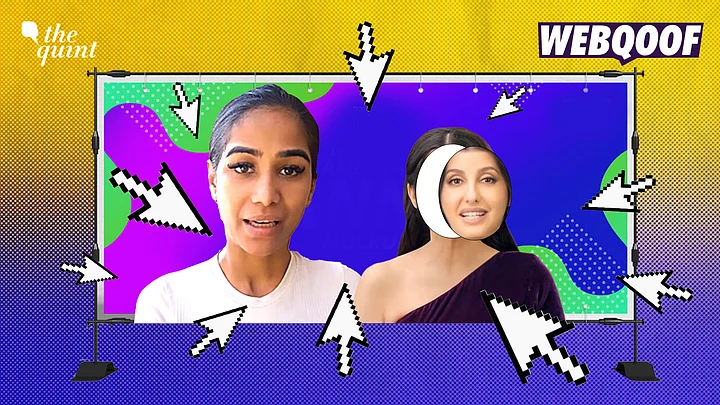While the reasons behind the Poonam Pandey death hoax and the Nora Fatehi deepfake scare were 'noble', did they really need to depend on mis/disinformation to deliver the message?
A recent survey showed that India has the highest risk of disinformation and misinformation, and we certainly don't need more fake news on our social media fields, especially during an election year.
But what does a celebrity death hoax or a deepfake ad campaign have to do with elections?
These stunts, albeit inadvertently, popularise the use of mis/disinformation, which is known to go viral and travel much faster than genuine information. This, in turn, leads to reduced trust in media and institutions, and develops an unhealthy level of scepticism.
Deepfake visuals of politicians merged with misleading context also surface on social media and gain thousands of views.
Popularising the Use of “Fake News” in Advertising
While Pandey's death hoax managed to garner a lot of attention, this wasn't the first time fake news was used in an online campaign.
Fatehi posted a story on Meta's Instagram platform, warning her followers about a deepfake video of hers being used by an 'unknown' app. However, it turned out to be an advertisement by HDFC Bank for their 'What the Fraud' series - which aims to build awareness about financial fraud.
Earlier in 2023, actor Ranbir Kapoor and Konkona Sen Sharma posted a video, hinting at a sequel to their movie Wake Up Sid, which turned out to be an advertisement for a smartphone.
Actor Tusshar Kapoor also pulled a similar stunt to promote a movie that showed CCTV and dash cam footage of what looked like a murder on the streets of Mumbai.
Back in 2010, international singer Alicia Keys along with other famous Hollywood celebrities "died digitally" to draw attention to World AIDS Day. The campaign, cleverly called "Digital Death", was collecting donations for the cause but it did not reached the levels of success as anticipated as this misleading campaign left the public perplexed.
Role of Deepfake Content: the Good, the Bad & the Ugly
With the advancement in Artificial Intelligence (AI) and deepfake technology, it has become an onerous task to differentiate facts from mis/disinformation. A report from late 2022 stated that deepfake attacks had increased by 43 percent since 2019, and these numbers are going to rise with time.
Several media experts and consumers have shown concerns about misleading content negatively impacting their choices. A survey also showed that 65 percent of consumers reported that they are unlikely to purchase a product or opt for a service from a brand that "advertises near misinformation".
"Misleading advertisements have a very direct impact on the viewer's minds," said Tara Mehta, a Clinical Psychologist from Fortis Hospitals, Mumbai.
Mehta also mentioned how advertisements have a way of targeting a certain population and by including famous faces, the audiences trust the celebrities' authenticity and avoid questioning what they are representing.
Assistant Vice President- Creative Director at OML, Uddhav Parab, explained the reasoning behind such campaigns and said, "For cause-driven campaigns, NGOs are usually tight with budgets. So they tend towards stunt-vertising to grab eyeballs, and when done in good taste, you, me, the general public is all for it".
He further mentions that campaigns made with AI technology or "misleading information" leave a varied impression on their viewers where. Some would fall for it, but some might catch the error or even appreciate the creativity.
Is Misleading the Viewers Benefiting the Brands?
One of the major reasons for companies opting for deepfake marketing is that this offers them unprecedented opportunities for creativity but this also invites significant risks.
It does carry the potential to deceive the viewers, spread misinformation and erode the viewer's trust in the brand as well as online content. This uncharted territory of navigating between innovation and responsible use of technology becomes perilous.
The recent campaign by HDFC in collaboration with Fatehi has drawn a confusing conversation in the picture. It misled viewers very easily; however, it also created a possibility of polarisation among users and amplified similar deceptive information.
Returning to Pandey's attempt at creating awareness about cervical cancer, it is important to note that the power of influence and deception via social media is not only in the hands of big brands but also with individuals with a big fan following.
Parab stresses how social media platforms are offering stronger reach to creators rather than brands, due to which brands often try to collaborate with creators.
While the hits of the search term "Cervical Cancer" did increase on 1 February, the search term "Poonam Pandey" had way more hits. After Pandey cleared the air about the campaign, the search queries for cervical cancer saw a massive drop and is heading towards near zero numbers.
Mehta states that young minds should be trained to be more balanced and be able to perceive the reality of the situation, because they have access to social media but have not been taught how to use it.
Parab concurs and adds that eventually, the generation familiar with technology will have to educate others on how to spot such campaigns.
"If this keeps on happening, eventually the government and social networks will step in and put in measures to curb them and impose fines on such brands/creators," Parab says.
